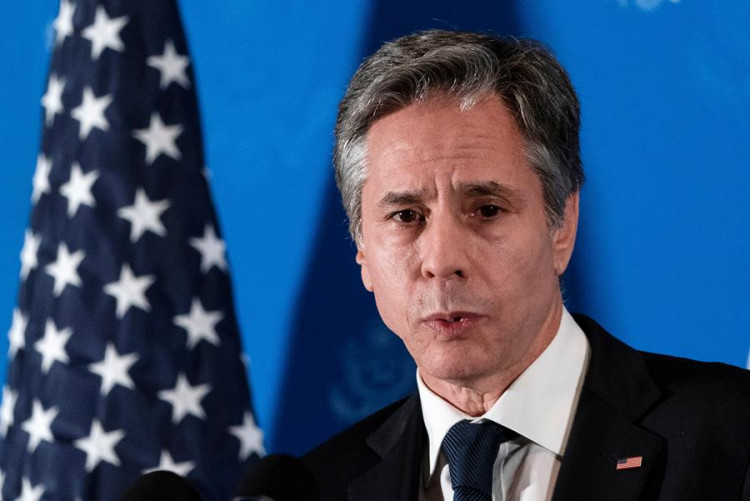U.S. Secretary of State Antony Blinken arrived in Israel on Tuesday, marking his seventh round of shuttle diplomacy in the region since the deadly Hamas attack on October 7. Blinken's visit comes as the U.S. seeks to increase pressure on Hamas to accept a ceasefire and hostage release deal while also addressing the humanitarian crisis in Gaza and cautioning against an Israeli military offensive in Rafah.
During his meetings with Israeli leaders, including Prime Minister Benjamin Netanyahu and President Isaac Herzog, Blinken emphasized the U.S.'s determination to secure a ceasefire and bring the hostages home. "We're determined to get a ceasefire that brings the hostages home, and to get it now," Blinken said during his meeting with Herzog, adding that "the only reason that wouldn't be achieved is because of Hamas."
Blinken also highlighted the need to focus on the suffering of the people in Gaza, stating, "We also have to be focused on the people in Gaza who are suffering. Getting them the assistance they need, the food, the water, the medicine, the shelter."
Outside the venue where Blinken and Herzog met in Tel Aviv, protesters gathered, holding posters urging U.S. President Joe Biden to "stop the war + save the hostages" and chanting "bring them home," referring to the Israeli hostages held in Gaza. Blinken took a moment to shake the protesters' hands and reassure them that officials would "not rest until everyone" returns.
U.S. officials have expressed optimism about the potential for reaching an agreement, citing Israel's "extraordinarily generous" proposal. Blinken reiterated that he believes a deal is "achievable because the Israelis put a strong proposal on the table," and urged Hamas to act without delay, stating, "No more delays. No more excuses. The time to act is now."
However, securing an agreement is not a foregone conclusion. Negotiators from Egypt, Qatar, the U.S., and Hamas gathered in Cairo to consider a new framework proposed by Egypt, which calls for Hamas to release as many as 33 hostages kidnapped from Israel in exchange for a pause in hostilities in Gaza. While Israel helped craft the proposal, it has not fully agreed to it and is awaiting a response from Hamas before deciding whether to send its own delegation to Cairo.
In response to Blinken's comments, senior Hamas official Sami Abu Zuhri accused the U.S. Secretary of State of unfairly blaming the delay of a Gaza ceasefire agreement on the Palestinian group. "Blinken's comments contradict reality. It is not strange for Blinken, who is known as the foreign minister of Israel, not America, to make such a statement," Abu Zuhri told Reuters.
Blinken's visit also aimed to address the immediate humanitarian catastrophe in Gaza. Although Israel had committed to changes, such as opening new crossings and allowing more trucks into Gaza, it has been slow to institute them. Blinken stressed the importance of focusing not only on inputs but also on impact, stating that "it is critically important that there be a clear, affirmative list of items of products that are required for the well-being of people in Gaza ... and that we don't have arbitrary denials of products that need to get into Gaza."
The U.S. has also repeatedly warned against a large-scale Israeli military offensive in Rafah, where more than a million Palestinians have fled. "We have not yet seen a plan that gives us confidence that civilians can be effectively protected," Blinken said Monday, casting doubt on the idea that such a plan could even be developed.
Despite Netanyahu's threats to carry out an offensive "with or without a deal," U.S. officials said they do not believe that an offensive is imminent.




